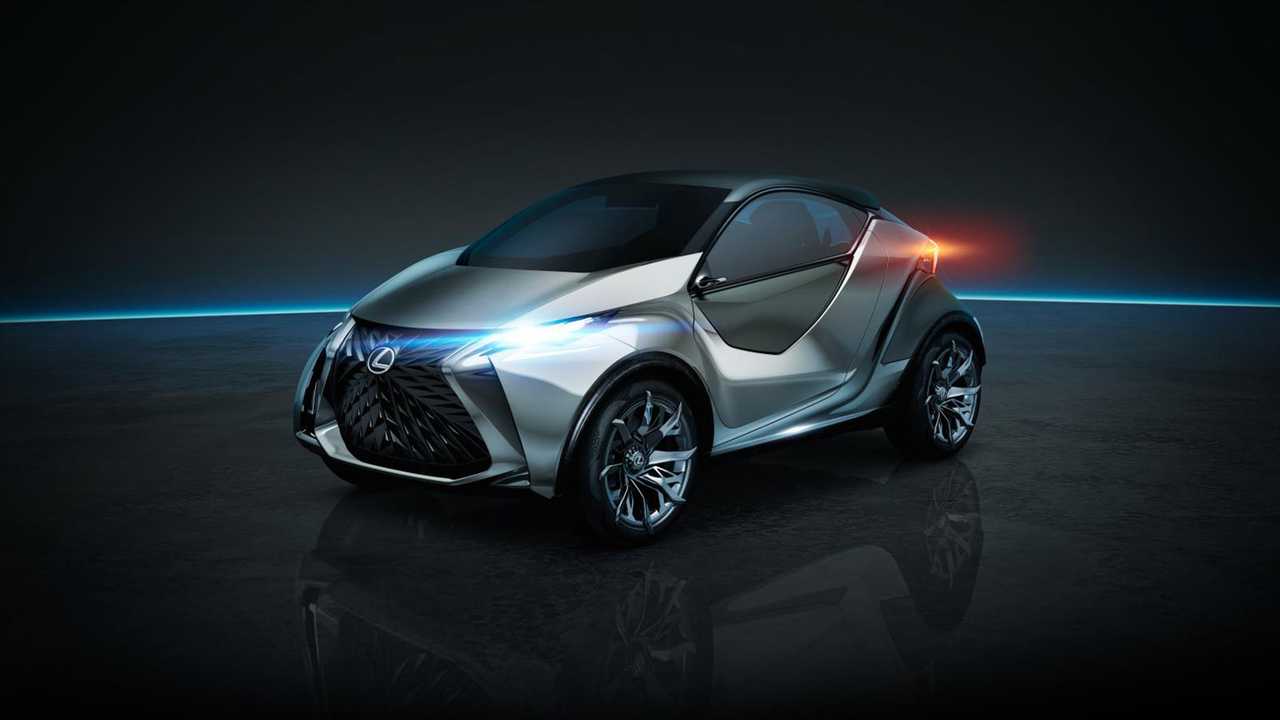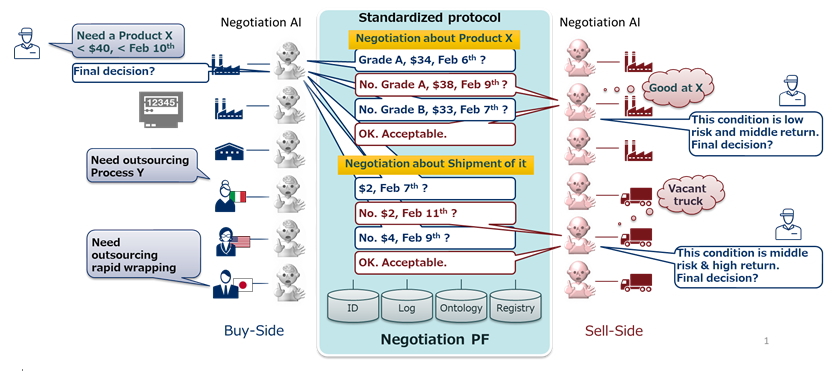Hybrids remain the core for the brand, but there will be all-electric models too. Lexus, after years of reluctance towards all-electric cars, is finally working on… a concept, of a small electric hatchback for city use. According to the latest rumors and previous reports, the new EV concept will be unveiled in October at the… Continue reading Small Fully Electric Lexus Concept To Be Shown In October
Tag: Toyota
Toyota Selects Around 240* Athletes from 43 Countries/Areas as Global Team Toyota Athletes on the Road to Tokyo 2020
Dedicated web page launched, supporting athlete activities towards Tokyo 2020 Helping people realise their dreams by supporting Olympic and Paralympic Games hopefuls Toyota Motor Corporation (Toyota), worldwide partner of the Olympic and Paralympic Games, today announced that it has launched a dedicated page on its global website to support and share the stories and activities… Continue reading Toyota Selects Around 240* Athletes from 43 Countries/Areas as Global Team Toyota Athletes on the Road to Tokyo 2020
UPDATE 2-Trump attacks Ford Motor for not backing fuel economy rollback
WASHINGTON (Reuters) – U.S. President Donald Trump stepped up a series of attacks on automakers on Wednesday for not backing his administration’s plan to roll back Obama-era fuel efficiency rules, singling out Ford Motor Co (F.N) in particular for backing a deal with California for stricter fuel economy standards. FILE PHOTO: U.S. President Donald Trump… Continue reading UPDATE 2-Trump attacks Ford Motor for not backing fuel economy rollback
BYD’s profit triples as China’s electric car boom continues
China is considering offering favourable treatment to other vehicle technologies including petrol-electric hybrid vehicles SHANGHAI – Chinese electric car maker BYD Co Ltd posted a 203.6% rise in first-half profit on Wednesday, as China’s new energy vehicle market continues to surge. The Shenzhen-based company, which is backed by U.S. investor Warren Buffett and whose products… Continue reading BYD’s profit triples as China’s electric car boom continues
California deal interrupts White House emissions rollback effort
Rancor in the White House over the move by four automakers to strike a side deal with California over emissions and fuel-economy rules looks likely to further delay President Trump's plans to roll back the Obama-era standards.
That's the conclusion of a report Tuesday in The New York Times, which cited four people familiar with the talks. After BMW, Ford, Honda, and Volkswagen signed an agreement with California to continue selling cars in the state that would exceed new, more lax standards proposed by the Trump administration, the White House summoned executives from General Motors, Fiat Chrysler, and Toyota to pressure them to support the President's rollback proposal, the Times reported.
Even amid that effort, Mercedes-Benz laid plans to join the California side deal, two people familiar with the company's plans told the Times. An unnamed sixth automaker was also planning to join the deal, the Times reported.
Mary Nichols, chairwoman of the California Air Resources Board—the state's top clean air regulator who manages the California program—told the Times, “Many companies have told us—more than one or two—that they would sign up to the agreement as soon as they felt free to do so.”
President Donald Trump (Photo courtesy Gage Skidmore/Wikimedia Commons)
The agreement would allow automakers more flexibility in time frames than existing joint standards do.
Continuing to sell more efficient cars in the face of lower standards could allow automakers to accumulate federal emissions credits that would make it easier for them to meet any future standards and in some cases avoid potential fines for failing to meet the standards.
It's all—almost—enough to get a tough Commander in Chief to throw in the towel. In one meeting, according to three inside sources cited in the report, President Trump even proposed scrapping his own plan, which would leave the Obama administration's steadily increasing fuel-economy standards in place.
Rolling back those fuel-economy increases—and revoking California's long-standing right to set its own standards which other states can also follow—has been a signature part of Trump's efforts to roll back emissions regulations aimed at limiting climate change.
Last August, the administration introduced the Safe Affordable Fuel-Efficient vehicles rule, which would cap planned increases in fuel-economy and emissions standards at 2020 levels through 2026—well after any second term for this President would expire.
Mary Nichols, chief, California Air Resources Board
The previous standards were expected to require all new cars sold by 2025 to average more than 50 mpg—a number that would require significant sales of electric cars to be sold nationwide. (Even those standards, however, were less strict than the latest standards going into effect in Europe.) The increases were negotiated with California, in conjunction with all three Detroit automakers, the EPA and NHTSA.
The agreement was worked out in more than 1,200 pages of scientific analysis that the Trump administration is still working to rebut in sufficient scientific and technical analysis required to implement a new rule change.
In the midst of this turmoil, three senior political officials working on the proposal have resigned, and one career official with years of experience in the issue was transferred to another department, leaving a 29-year-old former aide to Vice President Pence, with little experience in the issue, in charge of working out the new rule.
The rollback—and particularly efforts to rescind California's right to set standards that help the state mitigate its unique smog problems—have resulted in lawsuits against the federal government filed by at least 17 states. If the Trump proposal passes, those lawsuits are likely to linger in courts for years, creating even less unity and more uncertainty for automakers.
Last spring, EPA Administrator Andrew Wheeler told Reuters that he expected the new rule to be finalized sometime after Labor Day. Now that timeframe is looking likely to roll back even farther on one of President Trump's signature efforts.
Industrial Internet Consortium approves Testbed of Negotiation Automation Platform for coordinating interests among AI systems- Promoting implementation through expansion of participants –
2019-08-21 Tokyo, August 21, 2019 – NEC Corporation (NEC; TSE: 6701), Fraunhofer IOSB, Kabuku Inc., the Korea Electronics Technology Institute (KETI) , Oki Electric Industry Co., Ltd., and Toyota Tsusho Corporation announced today the approval by the Industrial Internet Consortium® (IIC™,*1) of a Negotiation Automation Platform Testbed in cooperation with Japan’s National Institute of Advanced… Continue reading Industrial Internet Consortium approves Testbed of Negotiation Automation Platform for coordinating interests among AI systems- Promoting implementation through expansion of participants –
Hydrogen fuel-cell e-bike claiming longer range, quick refueling
Before the Toyota Mirai, the Honda Clarity Fuel Cell, and the Hyundai Nexo faced off with the current crop of electric cars, there was a hydrogen fuel-cell e-bike—the Alpha, which also demonstrated that with hydrogen it could go farther than battery-boosted e-bikes.
Now France’s Pragma Industries has introduced Alpha2.0, a new version of the bike that’s good for 93 miles of electric-assisted range on a single charge—versus a typical range of 30 miles for e-bikes with only a lithium-ion battery.
Pragma claims that it’s the only e-bike with a range meter that can indicate the remaining riding range with an accuracy within 0.6 miles (1 km). It also emphasizes that the system provides consistent range and performance regardless of weather conditions. So when it’s extremely cold outside, for instance, the assisted range won’t plummet.
The Alpha2.0 combines a 150-watt PEM fuel cell with a 150-watt-hour lithium-ion battery pack helping buffer the energy flow. The Brose 36V electric motor capable of providing up to 250 watts (0.34 horsepower) of electric assistance.
Alpha2.0 hydrogen fuel-cell e-bike with hydrogen station
Its tank holds 2.0 liters of hydrogen gas, stored at 300 bar versus the previous 200 bar (the key to the higher energy on board), and it fills in just two minutes. Pragma has partnered with Ergosup, a hydrogen conversion company (see the video below), to make available the HyRis, a compact hydrogen fueling station.
The upgraded bike will be formally introduced with a lot of 200 headed to the G7 summit August 24.
Alpha2.0 hydrogen fuel-cell e-bikes headed to G7 conference – August 2019
While both Toyota and Hyundai have aims to scale up their fuel-cell systems beyond passenger vehicles, to commercial vehicles and industrial use, Pragma argues for scaling down, and says that the bike is good for fleet-duty situations such as for corporate staff, last-mile deliveries, tourist rentals, or bike-sharing programs.
The e-bike has one serious handicap, other than where to find hydrogen: It remains too expensive for personal use—in the vicinity of $7,500 for the bike, with the compact refueling station costing many times that. Perhaps, just as with those fuel-cell cars, there’s a good model for subsidized leasing.
INEOS Automotive Announces Powertrain Technology Partnership With BMW
Significant milestone in the development of INEOS Automotive’s 4×4, Projekt Grenadier, with the announcement of a powertrain technology partnership with BMW Group Technology partnership is the latest step forward in the realisation of INEOS’s plans to build an uncompromising world-class 4×4 vehicle BMW Group will supply both petrol and diesel engines, giving Projekt Grenadier’s customers… Continue reading INEOS Automotive Announces Powertrain Technology Partnership With BMW
Toyota Improves Preventive Safety Performance of “Sora” FCEV Bus in Japan
Aug. 06, 2019
Toyota Improves Preventive Safety Performance of “Sora” FCEV Bus in Japan
‘£500million annual profit is not enough for car makers to survive’
Ever get the feeling that some corporations charge motorists too much for car-related products? That their profit margins are obscenely high? That they’d still be fabulously profitable, even if they seriously slashed their retail prices? For emergency and other reasons, the mobile phone is essential for today’s car user, and the iPhone is among the… Continue reading ‘£500million annual profit is not enough for car makers to survive’

